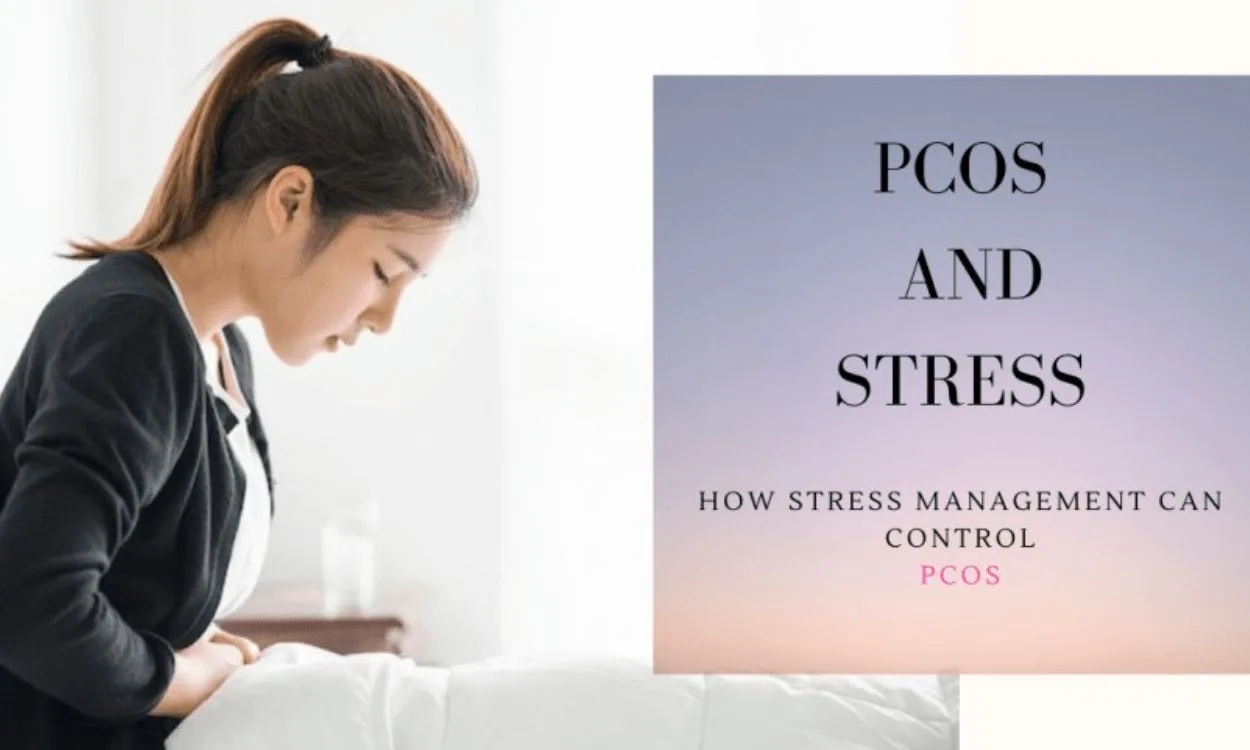Can PCOD Cause Anxiety and Stress?
Polycystic Ovary Syndrome (PCOS) is a common hormonal disorder that affects women of reproductive age. It is characterized by the presence of cysts on the ovaries, irregular menstrual cycles, and elevated levels of male hormones in the body. While PCOS primarily affects the reproductive system, it can also have significant effects on a woman’s mental health, leading to anxiety and stress. Let’s explore how PCOS can cause these emotional challenges and what you can do to manage them.
Understanding the Link between PCOS and Anxiety
- Hormonal Imbalance: PCOS is primarily caused by an imbalance in hormone levels, particularly elevated levels of androgens (male hormones). This hormonal imbalance can disrupt the normal functioning of the ovaries and lead to various physical symptoms such as irregular periods, acne, and excessive hair growth. These physical changes can often contribute to feelings of anxiety and distress.
- Body Image Concerns: Women with PCOS may experience changes in their weight and body shape due to hormonal imbalances and insulin resistance. These changes can lead to body image concerns and a negative perception of oneself, which can contribute to anxiety and stress.
- Fertility Issues: PCOS is a leading cause of infertility in women. The difficulty in conceiving and the uncertainty surrounding fertility can be a significant source of anxiety for women with PCOS. The pressure to start a family and the emotional toll of unsuccessful attempts can exacerbate feelings of stress and anxiety.
- Chronic Health Conditions: PCOS is often associated with other chronic health conditions such as insulin resistance, type 2 diabetes, and cardiovascular diseases. Managing these conditions alongside PCOS can be overwhelming and lead to increased levels of anxiety and stress.
- Emotional Symptoms: PCOS can also directly affect a woman’s mood and emotions. Hormonal imbalances can lead to mood swings, irritability, and depression, further contributing to feelings of anxiety and stress.
Managing Anxiety and Stress in PCOS
- Seek Support: It’s essential to reach out to healthcare professionals who specialize in PCOS management. They can provide guidance, support, and appropriate treatment options for both the physical and emotional aspects of PCOS.
- Stress Management Techniques: Incorporating stress management techniques such as mindfulness meditation, deep breathing exercises, yoga, and regular physical activity can help reduce anxiety and stress levels.
- Healthy Lifestyle Choices: Adopting a healthy lifestyle can positively impact both physical and mental well-being. Focus on a balanced diet, regular exercise, adequate sleep, and avoiding unhealthy habits such as smoking and excessive alcohol consumption.
- Counseling or Therapy: Engaging in counseling or therapy can provide a safe space to explore and manage the emotional challenges associated with PCOS. Therapists can help develop coping strategies, improve self-esteem, and provide support in navigating the complexities of PCOS.
- Support Groups: Joining support groups or online communities specific to PCOS can be beneficial in connecting with others who understand the challenges and can provide valuable insights and emotional support.
Introducing Fitpaa: Your Companion in Managing PCOS and Mental Well-being
While managing anxiety and stress is crucial for women with PCOS, it can be challenging to navigate without proper support. Fitpaa, an end-to-end AI-driven Metabolism monitoring and management technology, offers a comprehensive solution for women with PCOS. Here’s how Fitpaa can be your companion in managing PCOS and mental well-being:
- Personalized Fitpaa Capsule: Fitpaa’s expert team of fitness coaches, nutritionists, and doctors will prepare your personalized Fitpaa Capsule based on your metabolism, health & fitness goals, and current lifestyle. This capsule combines medical therapy, medical exercise therapy, medical nutrition therapy, and cognitive behavior therapy to optimize your metabolism and help you achieve your health goals.
- Fitpaa Realtime Guidance: Fitpaa’s real-time guidance technology incorporates concepts from cognitive behavioral therapy to provide timely nudges and habit-building techniques. It releases hormones like endorphins, dopamine, serotonin, and oxytocin to keep you motivated and inspired throughout the day.
- Fitpaa Mobile App: The Fitpaa mobile app offers a range of tools to support your PCOS management journey. It provides a virtual workout trainer, diet tracker, performance tracking, and progress tracking. The app makes following your Fitpaa Capsule easy and convenient.
- Expert Support: With Fitpaa, you’ll have access to a team of fitness planners, nutritionists, fitness trainers, and doctors who will regularly review your progress and make necessary adjustments to your Fitpaa Capsule. They will provide unlimited consultations, daily follow-up, and weekly reviews to ensure you stay on track towards your goals.
In conclusion, PCOS can indeed cause anxiety and stress due to various factors such as hormonal imbalances, body image concerns, and fertility issues. However, it’s important to remember that you are not alone in this journey. Seeking proper support, adopting stress management techniques, and making healthy lifestyle choices can go a long way in managing these emotional challenges. Fitpaa can be your trusted companion in managing PCOS and improving your mental well-being. Download the Fitpaa app today to experience the joy of achieving your health and fitness goals with guaranteed results.
Download the Fitpaa app now and embark on your journey towards a healthier and happier life.









